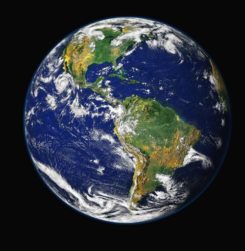
Editor’s note (September 21st 2022): At 8.00am Moscow time on September 21st, Vladimir Putin delivered his delayed address to the nation. He ordered a partial mobilisation, starting today, of reservists with military experience—300,000 men, according to a subsequently aired pre-recorded interview with Sergei Shoigu, the defence minister. Mr Putin said that he supported the referendums to allow four Russian-controlled Ukrainian regions to join Russia. He again accused the West of threatening Russia’s borders and of “blackmailing” the country with the threat of nuclear weapons, promising to use “all means” to defend it. In a thinly veiled allusion to his own nuclear arsenal, he said that the wind can also blow in the West’s direction. “This is not a bluff,” he warned.
DOES RUSSIA plan to declare a formal war on Ukraine and mobilise its reserves? “At the moment, no,” insisted Dmitry Peskov, the Kremlin’s slippery spokesman, on September 13th, days after Russia’s army was routed in Kharkiv province. “There is no discussion of this.” Yet there are signs that the Kremlin is now pondering such a step. Vladimir Putin, Russia’s president, was due to deliver a speech to the nation on the evening of September 20th. As viewers waited for hours, Mr Putin failed to appear. As this article was published, he had not done so, prompting frenzied speculation. But it was widely expected that he and Sergei Shoigu, his defence minister, had planned to address their latest escalation in the war.
On September 20th the Duma, Russia’s parliament, amended the country’s criminal code to toughen penalties on soldiers who surrender, loot or disobey orders. The new law specifies “mobilisation, martial law and wartime” as aggravating conditions. It increases penalties for soldiers who abandon their units during such periods, and establishes new punishments for reservists who fail to respond to a summons. For now, Russia is neither mobilised, nor under martial law, nor in a formal war. The question is whether the law has been changed in anticipation of these things.
Vladimir Putin, Russia’s president, has declared his assault on Ukraine a “special military operation”. Any ordinary Russian who calls it a war risks years in prison. Without a formal declaration of war, Mr Putin cannot legally keep conscripts in the army beyond their term of service, send them to Ukraine (unless they have four months of training) or mobilise reservists who do not wish to serve. The result is a serious shortfall of manpower, forcing Russia’s army to rely on mercenaries, prisoners and conscripts from occupied Ukrainian territory. The amendment might suggest that the Kremlin is preparing the ground for the mobilisation that Mr Peskov insisted was not on the table.
On the same day as this legislative signal, officials from the Luhansk and Donetsk People’s Republics (LNR and DNR), a pair of Russian puppet regimes in the eastern Ukrainian region of Donbas, said that they planned to hold referendums between September 23rd and 27th to allow the two regions to join Russia. Officials in Kherson and Zaporizhia, another pair of occupied provinces in the south, said they would follow suit. In other words, they are planning rigged polls to allow Russia to annex more Ukrainian territory illegally. Russia recognised the two republics as independent states days before launching its war in February. Sergei Naryshkin, the head of the SVR, Russia’s foreign intelligence agency, said at the time that he favoured the annexation of both territories, but the Kremlin held off from taking that step.
In one sense, the referendums would be largely meaningless. In Zaporizhia, Russia does not even control the capital city of the province. Although Russia controls most of Luhansk province—for now—it sits on only a portion of Donetsk. Moreover, Ukraine’s offensive in Kharkiv has severely weakened Russia’s military position in this region. The loss of Izyum, a key rail hub and base, makes it harder for Russia’s army to advance into Donetsk. It also threatens its positions in Luhansk. On September 19th Ukraine’s army captured Bilohorivka in Luhansk oblast, which lies 15-20km to the west of Lysychansk and Severodonetsk, cities in Luhansk province that Russia captured, at great cost and with considerable fanfare, in the summer.

One aim of holding the referendums might be to contain these Ukrainian advances in Donbas. If Russia were formally to annex LNR and DNR the Kremlin could claim, falsely, that Ukrainian offensives in those areas were attacks on Russian soil. That would raise the stakes. “Strikes on the territory of Russia [would] become a full-fledged war between Ukraine and NATO with Russia,” wrote Margarita Simonyan, editor of RT, a Russian state mouthpiece, on September 20th. The result, she noted with glee, would mean “untying Russia’s hands in all respects”.
The model, she noted, was Crimea. The peninsula was illegally annexed by Russia in 2014 after a similarly bogus referendum. Russian officials have since issued ominous warnings that a Ukrainian effort to recapture it would represent a serious escalation. “Any attempt to encroach on Crimea is a declaration of war against our country,” fulminated Dmitry Medvedev, the deputy chairman of Russia’s security council and the country’s former president, in the summer. “Judgement Day will [then] come very fast and hard.”
Western officials are anxious about the prospect of escalation should Russian front lines in the south collapse, enabling a Ukrainian ground assault on Crimea. Mr Putin’s aim might be to raise the same fears in the east, perhaps inviting Western pressure on Ukraine—reliant as it is on American and European arms and ammunition—to temper its attacks. That strategy would aim to capitalise on lingering Western worries that Russia might use a nuclear weapon, something Joe Biden, America’s president, warned against publicly on September 18th.
Neither mobilisation, if it is on the cards, nor annexation will solve Mr Putin’s problems. Mr Putin has so far refrained from ordering a national mobilisation because it would be horribly unpopular in Russia. Though the war has been a disaster, most Russians have been spared its worst effects. But the conscription of young men and the mobilisation of reservists would change that. It could provoke widespread anger at Mr Putin’s regime while offering little short-term help on the battlefield. There is no simple way to train, equip and find officers for a vast new army. The process would probably take more than a year.
Annexation, too, is fraught with dangers. It would commit Mr Putin to the financial and political upkeep of a war-torn region under perpetual risk of attack by a Ukrainian army that is likely to be armed by the West for years to come. It would also commit him to seizing the large chunk of Donetsk currently held by Ukraine—a task that seems well beyond his beleaguered armed forces, which have spent the past few months launching costly frontal assaults against Ukrainian positions there. Nor are nuclear threats entirely credible. Russia’s nuclear doctrine allows for the use of nuclear weapons against conventional threats to Russian territory, but only “when the very existence of the state is under threat”—a high bar. Ukraine’s army has been launching missiles and conducting raids against Crimea and facilities in Russia throughout the war, with little dramatic reply.
Even so, Russian nationalists, who have complained for months that Mr Putin has failed to wage a sufficiently savage and committed war, are cheering the latest moves. “These actions are evidence that the leadership of the Russian Federation nevertheless…has come to an understanding of the ‘total’… nature of the war on the so-called ‘Ukraine’,” wrote Igor Girkin, a firebrand Russian ex-commander in Donbas, on September 20th. Mr Putin, he said, “is preparing to fight ‘for real’”.




